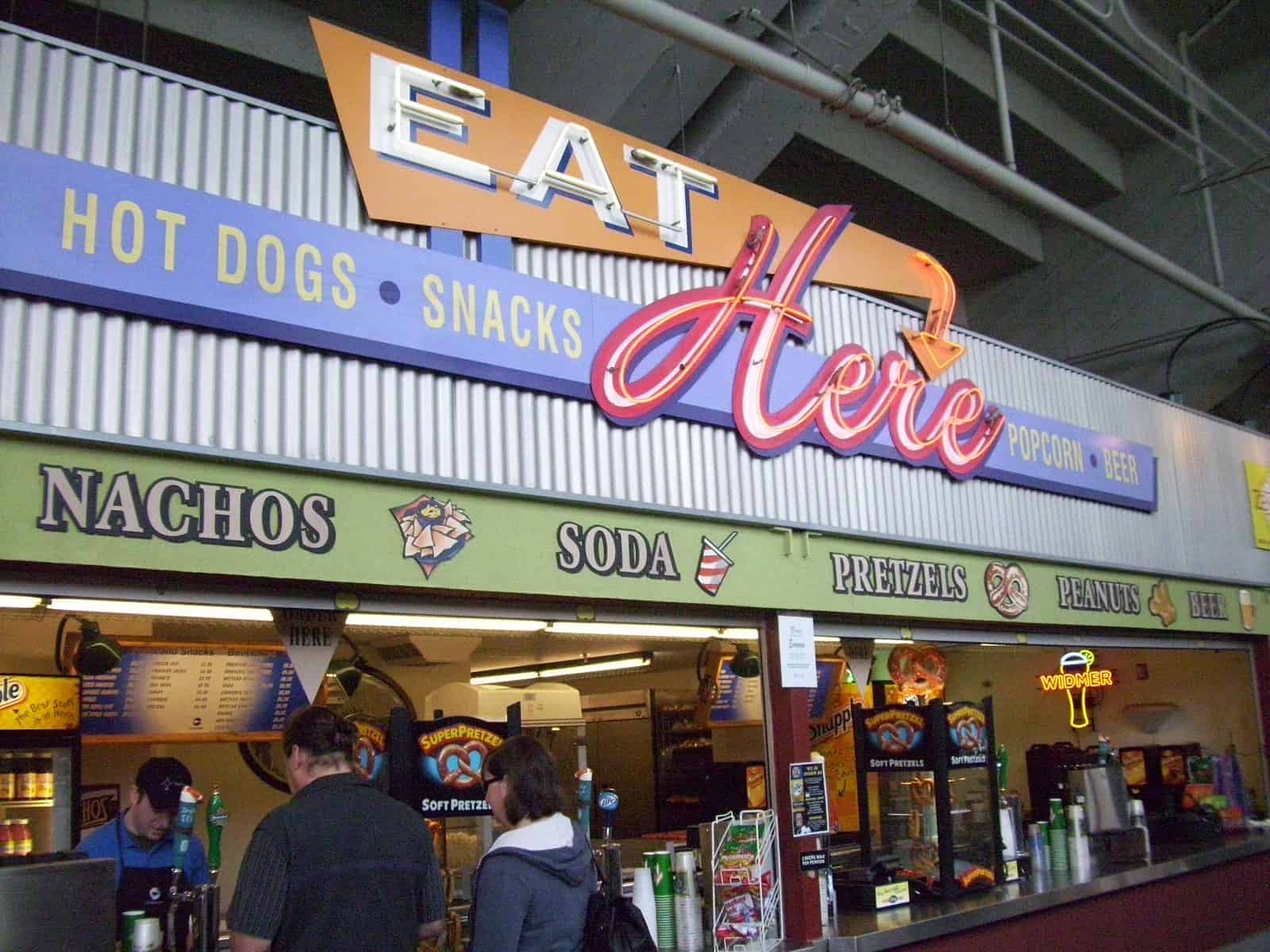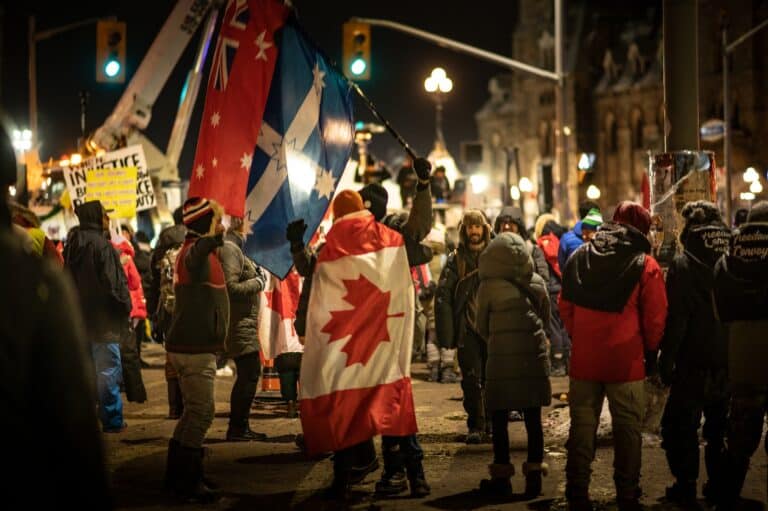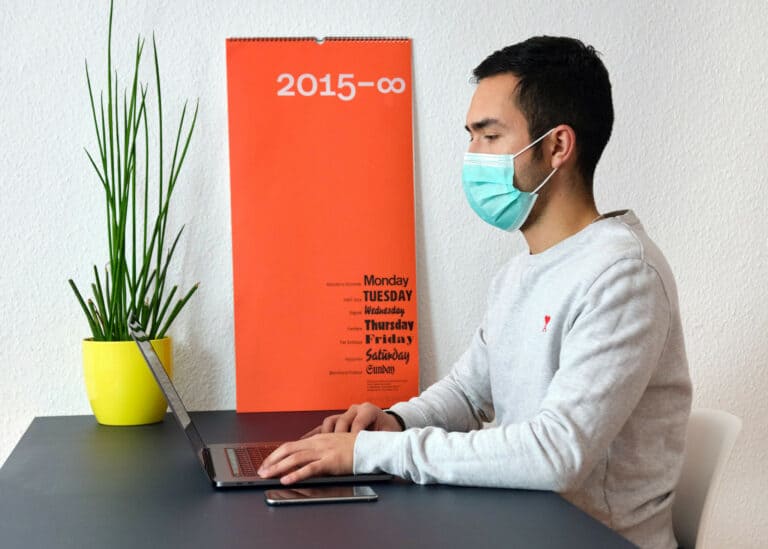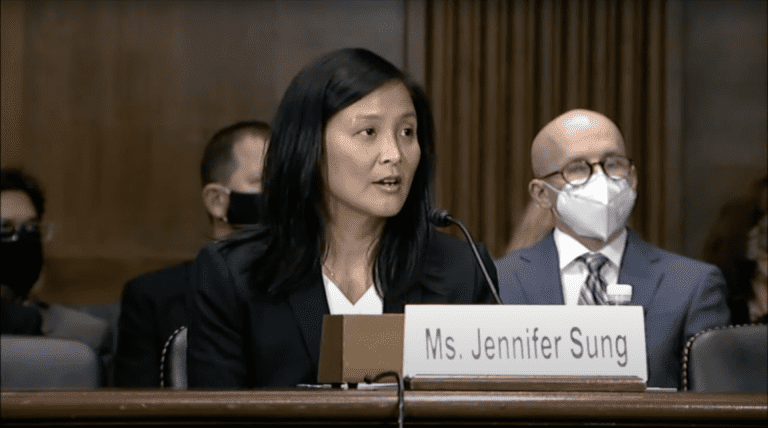Oscar Heanue is a student at Harvard Law School and a member of the Labor and Employment Lab.
Major League Baseball’s season is coming to a close, and, for many, the most significant story to come out of the Big Leagues this year may have taken place off the field. At San Francisco’s Oracle Park, food and concession workers exercised their collective bargaining power to seek improved conditions, securing a big win that could inspire workers at other stadiums to follow suit.
The Oracle Park Strike Vote
In September, UNITE HERE Local 2 – the union which represents Oracle Park’s concession workers – announced that the ballpark’s workers had voted overwhelmingly in favor of authorizing a strike. The workers’ decision came in response to myriad issues, including inadequate safety protocols to address COVID-related risks. According to Local 2, at least 20 concession workers were infected with COVID-19 over the course of the 2021 season. The strike vote included demands of both Bon Appetit – the food services provider contracted out by the Giants – and the Giants organization itself. While COVID safety concerns were foregrounded, the workers’ demands also included a variety of other issues pertaining to broader working conditions: an additional $3 per hour in “hazard pay” for shifts worked during the COVID-19 pandemic, increased future wages, lower thresholds for healthcare eligibility, improved pensions, and greater long-term job stability.
Initial negotiations regarding health and safety measures led to new requirements at the Park, including a mask mandate for ballpark visitors. However, negotiations with Bon Appetit over the workers’ substantive demands – including higher wages, increased pension benefits, and more accessible health care – stalled the parties’ ability to reach an agreement.
The Agreement
Nearly a month after the initial strike vote, organizers called off the strike after coming to terms with Bon Appetit and the Giants organization. The new contract, which was overwhelmingly approved by workers, will last until March of 2024. It includes a number of significant wins for the employees.
Chief among the new provisions was an increase in compensation: workers will receive an immediate pay raise of $3 per hour, which will increase to $7 per hour by 2024. Workers will also see $1.50 per hour in retroactive hazard pay for hours worked during the pandemic, and pension benefits will be increased for both full-time and seasonal employees.
Crucially, the new contract also lowers eligibility requirements for healthcare benefits. Prior to the strike vote, workers at Oracle Park were required to work at ten monthly events to qualify for employer-sponsored health insurance. The newly-negotiated deal reduces the threshold to nine monthly events, and will provide dental and vision insurance at no added cost to the worker.
The Bigger Picture
Though the pandemic provided a catalyst for Oracle Park’s workers to strike, the issues highlighted by the striking concession workers are common to concession workers across the country.
Wages were, unsurprisingly, one of Local 2’s focal points in the Oracle Park worker’s strike. Strong pay is crucially important for stadium workers, who often are scheduled for a lower number of paid hours than workers in comparable industries. Limited games or short shifts can mean that workers at stadiums are taking home less than needed to make ends meet even when hourly pay is relatively good. Take concession workers for the Los Angeles Dodgers: according to the Nation, as of 2020, Dodgers concession workers earned $17.39 per hour. That figure is relatively high compared to some MLB teams – the Dodger’s local counterpart, the Los Angeles Angels, paid only $15.85 per hour, for example. Yet, an employee who worked all 81 Dodgers home games would take home just $11,268.72 over the course of the season.
This is not to mention that baseball teams are frequently located in expensive metropolitan areas that require ballpark employees to pay steep rents or face significant commutes. In California, which boasts a national high of 18 professional sports teams, cost of living is 38 percent higher than the national average – and that figure is even greater in cities like Los Angeles and San Francisco. A worker at one of San Francisco or Los Angeles’s stadiums may spend multiple uncompensated hours commuting to work, reducing the return they see on the hours they put in.
For many stadium workers, wages are not the only pivotal concern. As one concession worker at Dodger Stadium told the LA Times, the health insurance provided through her job was just as important to her as the money she earned. Unfortunately, healthcare instability is often contractually embedded for concession workers. As reported by Molly Knight, stadium workers at Chase Center – the NBA Arena which hosts the Golden State Warriors – lost their health benefits when the Warriors were eliminated from last season’s NBA playoffs, since the team’s elimination meant the number of events at Chase Center that month would fall below the qualification threshold.
The COVID-19 pandemic has made health care stability a particularly salient issue – but uncertainty over the status of benefits has been a longstanding concern for employees working in professional sports stadiums. When the NBA shortened its season in 2011 due to an impasse between the Players’ Union and team owners, for example, stadium workers saw their insurance status jeopardized and felt the impact of lost wages. The pandemic has only exacerbated employee’s anxiety over health benefits. At the outset of the pandemic, COVID-19 related shutdowns left many stadium workers without work and at the mercy of their employers to determine whether their benefits would continue. Now, stadium workers are being asked to put their health in jeopardy by working at events where health and safety measures are often inadequately enforced.
Going Forward
For stadium workers, Oracle Park’s worker strike showcases the significant gains that can be made through collective bargaining. Concession workers will be taking home higher wages, better pensions, improved healthcare, and – at least in theory – will be working in a safer environment. These improvements, however, should be viewed as a starting point – not the end goal.
Under the newly-negotiated terms, Oracle Park workers’ benefits will still be unstable. Though the lowered threshold makes it more likely that workers receive healthcare, it does not fix the underlying issue of inherent instability baked into this benefits model. And though the workers’ wages stand to improve, they still represent a relatively small piece of the pie for the workers who allow games to function. The Giants earn nearly $300 million in stadium revenue annually, of which only about half comes from ticket sales. The rest comes from in-stadium sales of food, beverages, and merchandise, all of which are made possible by the workers who man these stands.
Concession workers still deserve more. There is no reason that a buzzer-beater should cost an employee their healthcare. Teams like the Giants are multi-billion dollar enterprises that can afford to provide better wages and benefits. Perhaps the future could even see salaries and guaranteed healthcare for concession workers who work a requisite percentage of available games.
As the Oracle Park strike illustrates, however, employers will not accede to workers’ demands without a fight. To effect large-scale change in America’s stadiums, concession workers nationwide will have to continue to organize and push for change. Oracle Park should be just the start.










Daily News & Commentary
Start your day with our roundup of the latest labor developments. See all
July 1
In today’s news and commentary, the Department of Labor proposes to roll back minimum wage and overtime protections for home care workers, a federal judge dismissed a lawsuit by public defenders over a union’s Gaza statements, and Philadelphia’s largest municipal union is on strike for first time in nearly 40 years. On Monday, the U.S. […]
June 30
Antidiscrimination scholars question McDonnell Douglas, George Washington University Hospital bargained in bad faith, and NY regulators defend LPA dispensary law.
June 29
In today’s news and commentary, Trump v. CASA restricts nationwide injunctions, a preliminary injunction continues to stop DOL from shutting down Job Corps, and the minimum wage is set to rise in multiple cities and states. On Friday, the Supreme Court held in Trump v. CASA that universal injunctions “likely exceed the equitable authority that […]
June 27
Labor's role in Zohran Mamdani's victory; DHS funding amendment aims to expand guest worker programs; COSELL submission deadline rapidly approaching
June 26
A district judge issues a preliminary injunction blocking agencies from implementing Trump’s executive order eliminating collective bargaining for federal workers; workers organize for the reinstatement of two doctors who were put on administrative leave after union activity; and Lamont vetoes unemployment benefits for striking workers.
June 25
Some circuits show less deference to NLRB; 3d Cir. affirms return to broader concerted activity definition; changes to federal workforce excluded from One Big Beautiful Bill.